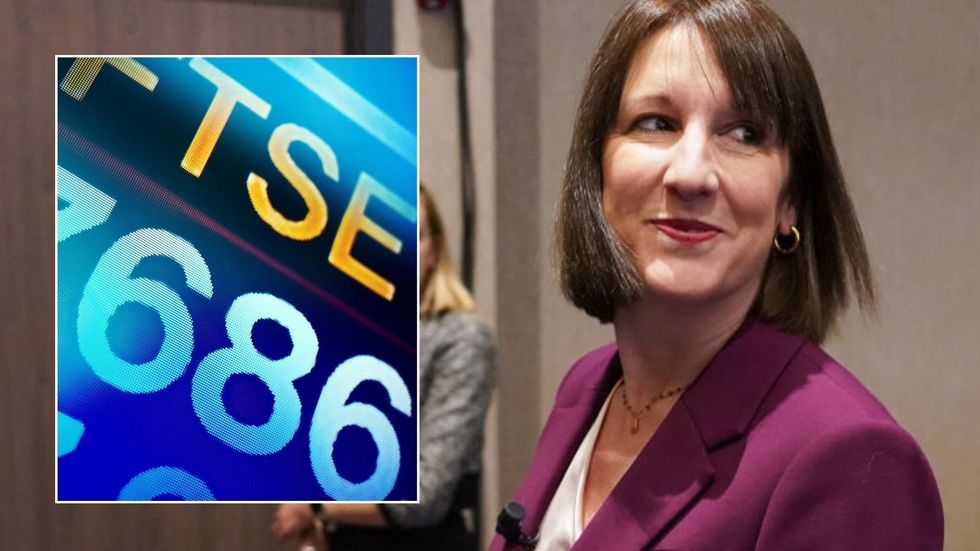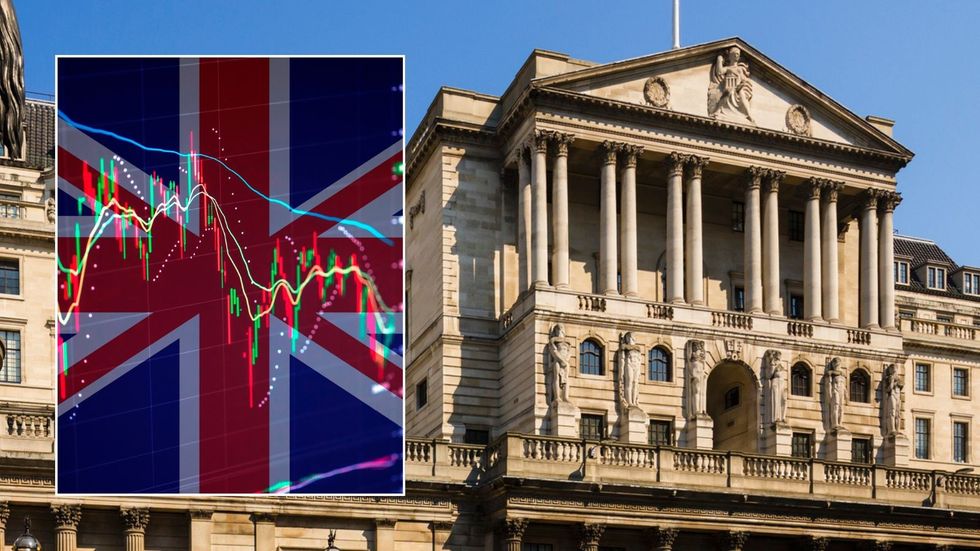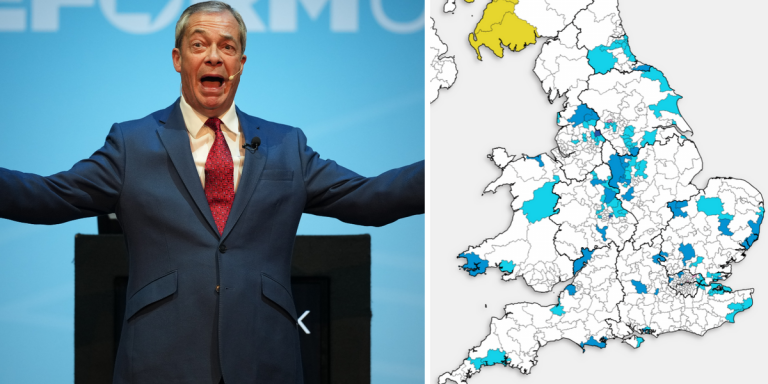The UK economy is experiencing a slight boon in the wake of today’s inflation figures with the stock market jumping and borrowing costs plummeting. Economists cite this as much-needed “relief” for Chancellor Rachel Reeves amid recent market turmoil.
Figures from the Office for National Statistics (ONS) published today revealed the consumer price index (CPI) rate of inflation for the 12 months to December 2024 fell to 2.5 per cent, down from 2.4 per cent.
This morning, the FTSE 100 added 55 points at the open to reach 8,257, primarily led by Persimmon PLC (LSE:PSN) and other housebuilding companies, signalling renewed confidence among parts of the private sector.
Bond markets have reacted positively to the figures, with 10 and 30-year gilt yields plummeting by eight and six basis points respectively to 4.81 per cent and 5.39 per cent.
Last week, long-term and short-term gilt yields surged which placed renewed scrutiny on the Chancellor’s fiscal agenda which was announced during the Autumn Budget.
Do you have a money story you’d like to share? Get in touch by emailing money@gbnews.uk.

“Relief” for Reeves after today’s inflation figures
GETTY / PA
On Wednesday, sterling bounced back against the dollar climbing by 0.14 per cent to US $1.2240 in response to the UK’s inflation figures. However, analysts are warning incoming President-elect Donald Trump’s promise of implementing tariffs could cause further market volatility.
Scott Gardner, an investment strategist for Nutmeg, emphasised that slowing price increases could give the Bank of England an opportunity to cut interest rates further.
He notes this will be a “sigh of relief” for Reeves and Treasury who are struggling to convince the markets and the public their policies will ease the cost of living crisis.
Gardner explained: “In the lead-up to this release, it was clear that markets could not afford any surprises after a troubling period which saw UK assets hit by fears of low economic growth and persistent inflation. This data will hopefully allay some of those concerns.”

The FTSE 100 has rallied following today’s inflation figures
Reuters
Currently, the Bank of England’s base rate is sitting at 4.75 per cent. While this is lower than its peak of 5.25 per cent seen last year, borrowers have struggled to pay hiked rates.
Mortgage and debt repayments have risen dramatically in recent years in response to the central bank’s decision-making, while savers have benefited from this period of bolstered interest rates.
Going into 2025, analysts predicted that the Bank would slash the rates at least twice which could see the base rate reach as low as four per cent with some forecasting it could happen at the Monetary Policy Committee’s (MPC) next meeting.
Reacting to today’s inflation figures, MHA’s Joe Nellis warned that inflation continues to be an issue and increases the cost of Government borrowing, potentially placing the UK in a “debt spiral”.
He explained: “The fear of this catch-22 will continue to be a worry for the Government if inflation cannot be tamed in the coming months, with the Chancellor facing the erosion of her fiscal headroom of almost £10billion.
“To remain within self-imposed ‘fiscal rules’, the Chancellor will be forced to either squeeze public sector expenditure or raise taxes even further. What does this mean for interest rates?
LATEST DEVELOPMENTS:

The Bank of England’s MPC will meet next month to discuss interest rates
GETTY
“This sustained high level of inflation is concerning, particularly as core inflation remains elevated. Yet, despite these persistent inflationary pressures, we believe that the Bank of England will resume cutting interest rates at their next meeting, with further cuts expected at least three times throughout the year.”
Kevin Brown, a savings specialist at Scottish Friendly, added: “Despite inflation coming down slightly, the message for households is still clear: we’re not out of the woods yet. The only ray of hope at the moment is that wage growth is still relatively strong. However, this in itself won’t help inflation settle.
“For anyone who finds themselves able to set aside some money each month, ensuring a solid rainy-day fund is in place is essential. Beyond that, for those saving for the longer-term, consideration should perhaps be made at this point for investments, as savings rates are unfortunately continuing to weaken.”
The Bank of England’s MPC will next meet on February 6, 2025.























+ There are no comments
Add yours